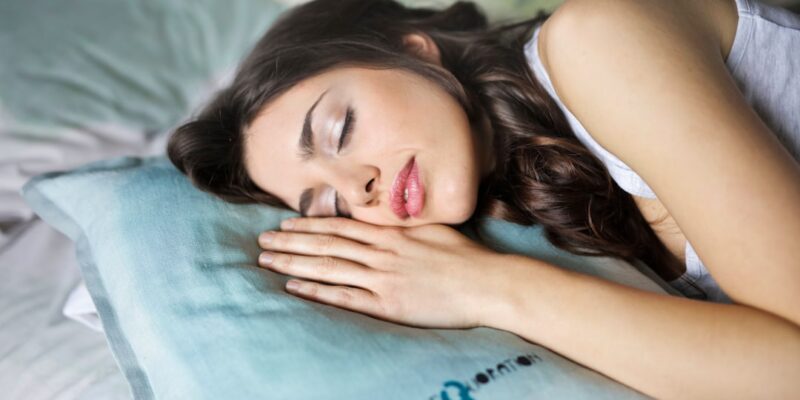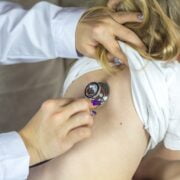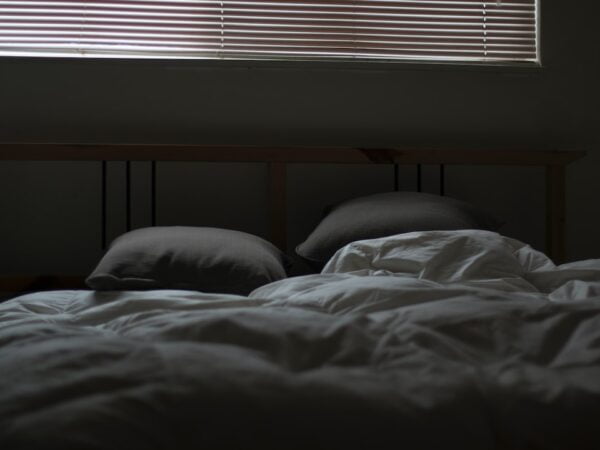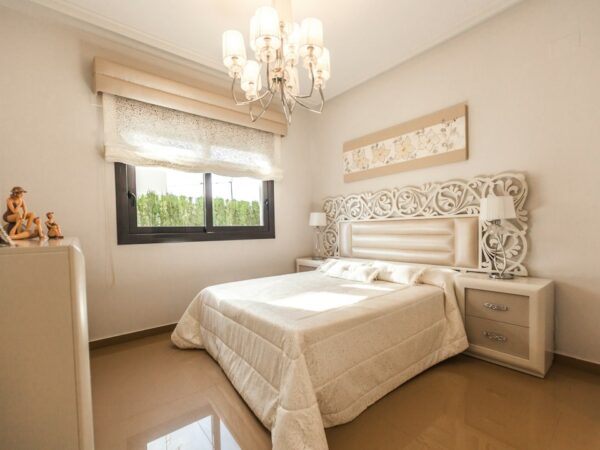
Unlocking the Secret to Better Sleep: Tips and Tricks for a Restful Night
Sleep is a fundamental aspect of our lives that is often overlooked. It is essential for overall health and well-being, as it allows our bodies to rest and recharge. Lack of sleep can have detrimental effects on our physical and mental health, leading to various health problems such as obesity, diabetes, heart disease, and even mental disorders like depression and anxiety.
Key Takeaways
- Sleep is crucial for overall health and well-being.
- Understanding the sleep cycle can help improve sleep quality.
- Factors such as stress, diet, and environment can affect sleep.
- Creating a sleep-conducive environment and practicing relaxation techniques can promote better sleep.
- Natural remedies and establishing healthy sleep habits can also improve sleep hygiene.
The Science of Sleep: Understanding the Sleep Cycle
The sleep cycle consists of different stages that our bodies go through during the night. These stages include non-rapid eye movement (NREM) sleep and rapid eye movement (REM) sleep. NREM sleep is further divided into three stages: N1, N2, and N3.
During N1, which is the lightest stage of sleep, we may experience drifting in and out of consciousness. In N2, our brain waves slow down, and our body temperature drops. This stage accounts for the majority of our sleep time. N3 is the deep sleep stage where our body repairs and restores itself.
REM sleep is the stage where most dreaming occurs. Our brain activity increases, and our eyes move rapidly. This stage is crucial for memory consolidation and learning.
Factors that Affect Sleep Quality
Several factors can affect the quality of our sleep. Stress and anxiety are common culprits that can keep us awake at night. When we are stressed or anxious, our minds tend to race, making it difficult to fall asleep or stay asleep.
Noise and light pollution can also disrupt our sleep. Loud noises or bright lights can wake us up or prevent us from falling asleep in the first place. Creating a quiet and dark environment in the bedroom can help promote better sleep.
Temperature and humidity levels in the bedroom can also impact sleep quality. A room that is too hot or too cold can make it uncomfortable to sleep. Finding the right balance and adjusting the temperature and humidity levels to suit individual preferences can contribute to a more restful sleep.
The quality of our mattress and pillows can also affect our sleep. An uncomfortable mattress or pillows that do not provide adequate support can lead to discomfort and pain, making it difficult to get a good night’s sleep.
Tips for Creating a Sleep-Conducive Environment
| Tips for Creating a Sleep-Conducive Environment |
|---|
| Avoid caffeine, nicotine, and alcohol before bedtime |
| Keep the bedroom cool and dark |
| Invest in a comfortable mattress and pillows |
| Establish a relaxing bedtime routine |
| Avoid using electronic devices before bedtime |
| Use white noise or earplugs to block out noise |
| Avoid eating heavy meals before bedtime |
| Keep the bedroom quiet and free of distractions |
Creating a sleep-conducive environment is essential for promoting better sleep. Here are some tips to help create an optimal sleeping environment:
1. Keep the bedroom dark, quiet, and cool: Use blackout curtains or eye masks to block out light, and consider using white noise machines or earplugs to block out noise. Keeping the room cool can also help promote better sleep.
2. Invest in a comfortable mattress and pillows: A good quality mattress and pillows that provide adequate support can make a significant difference in sleep quality. It is worth investing in these items for a better night’s sleep.
3. Establish a bedtime routine: Having a consistent bedtime routine can signal to your body that it is time to wind down and prepare for sleep. This routine can include activities such as reading, taking a warm bath, or practicing relaxation techniques.
The Role of Diet and Exercise in Promoting Better Sleep
Diet and exercise play a crucial role in promoting better sleep. Regular exercise has been shown to improve sleep quality by reducing stress and anxiety, increasing the production of endorphins, and promoting relaxation.
However, it is important to avoid exercising too close to bedtime, as it can increase alertness and make it difficult to fall asleep. It is recommended to finish exercising at least three hours before bedtime.
In terms of diet, it is best to avoid consuming caffeine and alcohol before bedtime. Caffeine is a stimulant that can interfere with sleep, while alcohol may disrupt the natural sleep cycle and lead to fragmented sleep.
Eating a balanced diet that includes sleep-promoting foods can also contribute to better sleep. Foods rich in tryptophan, such as turkey, chicken, nuts, and seeds, can help promote the production of serotonin and melatonin, which are hormones that regulate sleep.
Relaxation Techniques for a Calm Mind and Body
Relaxation techniques can be effective in promoting a calm mind and body before bedtime. These techniques can help reduce stress and anxiety, making it easier to fall asleep and stay asleep.
Meditation and deep breathing exercises are simple yet powerful techniques that can help relax the mind and body. By focusing on the breath and clearing the mind of thoughts, meditation can induce a state of relaxation that is conducive to sleep.
Yoga and stretching are also beneficial for promoting relaxation. These practices help release tension in the muscles and promote a sense of calmness in the body.
Progressive muscle relaxation is another technique that involves tensing and then relaxing each muscle group in the body. This technique helps release physical tension and promotes a state of relaxation.
Sleep Aids: Pros and Cons of Over-the-Counter and Prescription Medications
Sleep aids can be helpful for those struggling with sleep difficulties. Over-the-counter sleep aids, such as antihistamines, can be effective in promoting sleep. However, they may have side effects such as drowsiness, dry mouth, and grogginess the next day.
Prescription medications for sleep should only be used under the supervision of a doctor. These medications are typically prescribed for short-term use and may have potential side effects or risks associated with long-term use.
It is important to consult with a healthcare professional before using any sleep aids to ensure they are safe and appropriate for individual needs.
Natural Remedies for Insomnia and Sleep Disorders
For those who prefer natural remedies, there are several options available that can help promote better sleep.
Herbal supplements like valerian root and chamomile have been used for centuries to promote relaxation and improve sleep. These supplements can be taken in the form of teas, capsules, or tinctures.
Aromatherapy with essential oils like lavender and chamomile can also be effective in promoting relaxation and better sleep. These oils can be diffused in the bedroom or applied topically before bedtime.
It is important to note that natural remedies may not work for everyone, and it is best to consult with a healthcare professional before using them, especially if you have any underlying health conditions or are taking medications.
Sleep Hygiene: Establishing Healthy Sleep Habits
Sleep hygiene refers to the practices and habits that promote good sleep. Here are some tips for establishing healthy sleep habits:
1. Stick to a consistent sleep schedule: Going to bed and waking up at the same time every day, even on weekends, helps regulate the body’s internal clock and promotes better sleep.
2. Avoid using electronic devices before bedtime: The blue light emitted by electronic devices can interfere with the production of melatonin, a hormone that regulates sleep. It is best to avoid using these devices at least an hour before bedtime.
3. Create a relaxing bedtime routine: Engaging in relaxing activities before bed, such as reading, taking a warm bath, or practicing relaxation techniques, can help signal to your body that it is time to wind down and prepare for sleep.
Achieving a Good Night’s Sleep for Optimal Health and Well-being
Achieving a good night’s sleep is essential for optimal health and well-being. By prioritizing sleep and implementing strategies to create a sleep-conducive environment, we can improve our sleep quality and reap the benefits of restful sleep.
Natural remedies and relaxation techniques can be effective in promoting better sleep, but it is important to consult with a healthcare professional if sleep problems persist or worsen.
Remember, good sleep hygiene and a sleep-conducive environment are key to achieving quality sleep. By making sleep a priority and taking steps to improve our sleep habits, we can enhance our overall health and well-being.
FAQs
What is better sleep?
Better sleep refers to the quality and quantity of sleep that an individual gets. It involves having a sufficient amount of uninterrupted sleep that leaves one feeling refreshed and energized upon waking up.
Why is better sleep important?
Better sleep is important for overall health and well-being. It helps to improve cognitive function, memory, and concentration. It also helps to regulate mood, reduce stress, and boost the immune system. Additionally, better sleep is essential for physical health, as it allows the body to repair and regenerate.
What are some tips for getting better sleep?
Some tips for getting better sleep include establishing a regular sleep schedule, creating a relaxing sleep environment, avoiding caffeine and alcohol before bedtime, and engaging in relaxation techniques such as meditation or deep breathing exercises.
What are some common sleep disorders?
Some common sleep disorders include insomnia, sleep apnea, restless leg syndrome, and narcolepsy. These disorders can have a significant impact on an individual’s quality of life and may require medical intervention.
How can technology help improve sleep?
Technology can help improve sleep by providing tools and resources to track and monitor sleep patterns, as well as offering relaxation techniques and white noise options to promote better sleep. Additionally, technology can help to reduce exposure to blue light, which can disrupt sleep patterns.














[…] provides valuable insights and practical advice to help you achieve quality sleep. Check it out here and take your health journey to the next […]